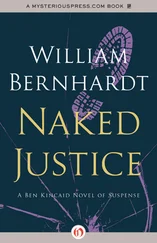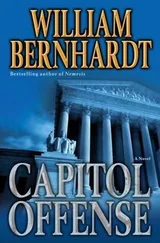“It won’t.” A wide, leering grin spread across his pocked face. “Byrne will come to me.”
52
10:40 P.M.
TRAVIS AND CAVANAUGH SAT side by side on the ratty double bed in their fleabag motel room. They purposely chose low-end accommodations, both to stay out of sight, and because they knew their cash on hand couldn’t last forever and using credit cards and automated tellers would be suicide. Without discussion, they had agreed to share a room—safety in numbers. They’d stopped at a gas station, and while Cavanaugh gassed up, Travis grabbed an assortment of unnutritious snacks—beef jerky, potato chips, pork rinds, and every other high-fat fried food he hadn’t eaten in months.
“Kind of sliding off the cholesterol-free diet, aren’t you?” Cavanaugh observed.
“Right now I need stress reduction. And I don’t care if I gain a few pounds getting it.”
“Certainly that’s always been my approach to dieting.” She opened a jumbo bag of Cheetos. “Topic one. First thing tomorrow, we need to get a new car.”
“Fine. I’ve got forty-five bucks left.”
“I’m serious, Byrne. Whoever crashed my apartment knows my name, and if they know my name, all it takes is a phone call to get a description of my car and the license-plate number. Plus that goon at the library may have seen the car. We need new wheels.”
“But if we buy a new car, we’ll have to register it.”
“True. That’s why, much as it pains me, I conclude that we should acquire a new vehicle by less than legal means.”
“Am I hearing these words spoken by Little Miss I’m an Officer of the Court?”
Cavanaugh snatched his pork rinds. “Our lives are on the line here. Legal ethics are a swell concept, but I’m not prepared to die for them.”
“And how are we going to acquire this automobile by, uh, less than legal means?”
“Leave it to me.”
“You’re the expert.” He paused, then added, “Laverne.”
She slugged him on the arm. “Byrne, if you start calling me Laverne in the courtroom, so help me—”
“Relax, relax. I wouldn’t do that. Besides, surely you realize we’re both going to be disbarred.”
“That makes me feel much better.”
“It’s not such a bad name. Laverne, I mean. Has kind of a warm … grandmotherly feel.”
“Just what I was hoping for.” Cavanaugh sighed. “I always wanted a friendly name. The kind of name people have that other people … well, like .”
“Such as what?”
“Oh, I don’t know. Daisy, maybe.”
“Daisy? Like Blondie and Dagwood’s dog?”
She cast her eyes toward the ceiling. “One year when I was in college, during spring break, I decided to drive from Dallas to San Francisco to visit an old high-school friend. A brief adventure. I drove it nonstop—just me, the radio, and lots of No Doz. Anyway, along the way, somewhere in Arizona, I think, I picked up this hitchhiker.”
Travis’s eyes widened. “You? A hitchhiker?”
“I was younger then. I didn’t know any better. He was what my parents would’ve called a hippie, even then. Long stringy unwashed hair, a guitar, fringed jacket. He was a folksinger, or wanted to be. He played a few tunes for me in the car. He wasn’t bad.” She turned away suddenly. “I’m sorry. I’m boring you.”
“No, please continue. I’m fascinated. This is so unlike the Madame Prosecutor I’ve come to know and … know.”
“Yeah, well …” She waved her hand aimlessly. “The hitchhiker asked me what my name was. I went by my initials then—L.C.—but he wouldn’t settle for that. He wanted to know what the letters stood for, and I eventually told him.”
“And then what? He left in outrage?”
“No. He grew very quiet, then said, ‘Well, I’m going to call you Daisy.’ ”
A smile played upon her lips. “And he did, for the whole drive to California. Called me Daisy. I loved that name. It was so … soft. And romantic. It was everything I had never been but always secretly wanted to be.”
“What happened?”
Cavanaugh shrugged. “He got out in Monterey. I never saw him again. And no one has called me Daisy ever since.”
“Did you ever tell your parents you wanted a name change?”
“My parents are dead. Sailboat accident off the Gulf Coast. When I was fifteen.”
“Sorry. I didn’t know.”
She nodded slightly. “Doesn’t matter.”
“Must’ve been rough on a fifteen-year-old.”
“I always wanted to go to law school, but after my parents died, I lived with an aunt who didn’t want me and couldn’t afford me. Paying for a college education was out of the question. After about six months of just bumming around, one of my low-life high-school friends got me into the skip-tracing business. Hell, at the time, I thought he was a big shot. Wore expensive shoes, jewelry. At least he could pay his bills, which was more than I could manage. He showed me the ropes. Eventually took me in as a partner.”
“You mean … in the business sense?”
Cavanaugh looked into his eyes, as if evaluating how much she could trust to tell. “I mean in every sense.”
“I see.”
“It was fine for the first two years. Then, almost all at once, it fell apart. He started saying we should take separate vacations, see other people, crap like that. He thought that was the kind approach, the sensitive guy’s way out. I think he was a coward. It would’ve hurt less if he’d just disappeared one day.”
“That’s when you left the skip-tracing racket?”
“Yup. I had made some money; he was reasonable about letting me keep most of what I earned. I finished undergrad in three years, took the LSAT, applied to South Texas, and got in. After law school, I worked for the Attorney General’s Office, then the DA, and now the U.S. Attorney’s Office. And that pretty much brings us up to date. I thought I had a promising career. Everyone seemed to like me, I got good reviews—and then one day this crazed lawyer with a roll of duct tape broke into my apartment and taped me to a chair. Now half of Dallas is gunning for me.”
“Sorry about that.”
“What about you, Byrne? You probably hail from some small farm town and have a cute little gray-haired ma who bakes you apple pies on your birthday.”
“No. My parents are gone, too. Mom when I was young. Dad when I was at the police academy.”
“Oh.”
“Yeah.”
She paused. “At least your father got to see you on the way to becoming something. He must’ve been very proud.”
Travis laughed bitterly. “Not hardly. He thought I was throwing my life away. To use his own words, ‘chasing a childish dream of playing cops and robbers.’ ”
“What did Dad want you to be?”
“Same as him. A trial lawyer.”
Cavanaugh placed her fingers against her lips. “So he never got to see you become one of the best courtroom attorneys in the state. That’s a pity.” She was quiet for a moment. “How did he die?”
“Heart attack. Stress-induced. And yes, to answer your next questions, he was overweight, he ate too much of the wrong foods, and we’d had a big argument about my future the night before.”
Cavanaugh waited a long time before breaking the silence. “Will you tell me why you quit the police force?”
Travis’s face became stony. “Why? That was a long time ago. Before Moroconi. Before the world turned upside down.”
“I heard … I heard something horrible happened.”
“You heard right. I don’t think you want to know.”
She placed her hand carefully over his. “I do,” she said quietly. “I really do.”
It was the middle of April, over four years before, on a beautiful, sunshine-filled Dallas day. Travis was off duty, and he and Angela were enjoying a leisurely afternoon on the town, heading nowhere in particular, reveling in the luxury of one another’s company.
Читать дальше









